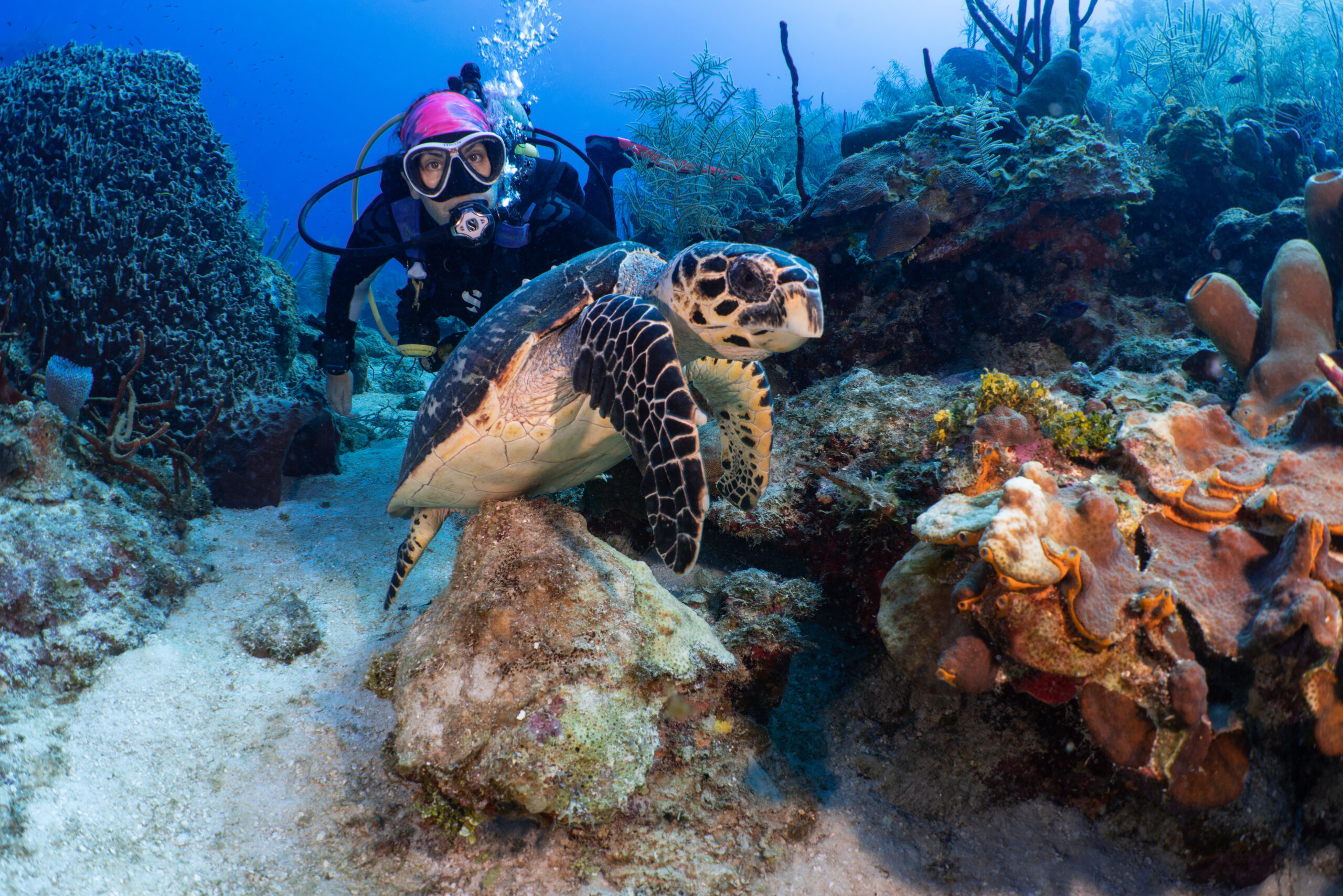NEWS
CCMI scientific publication reveals the negative impact of sound on fish in Grand Cayman

Grand Cayman, Cayman Islands; 31st January 2024 – The Central Caribbean Marine Institute (CCMI), supported with funding by Walkers and the UK Government’s Darwin Plus Programme, recently published a paper in the scientific journal Nature Scientific Reports following a study into the response of fish in Grand Cayman harbour to the reduction of water-based activities, including shipping, during the Covid-19 lockdown.
The project examined the response of fish communities to this period of altered activity, measuring number of individual fish and species, and the biomass of fish at Eden Rock, Don Fosters, Fish Point, and Wharf from 2020-2022. This study provides unprecedented insights to the impacts of human activity and the resilience of reef fish populations.
CCMI’s research team found that the abundance and biomass of fish populations near the main harbour of Grand Cayman were lowest when the study began near the start of lockdown, in July 2020, and continued to increase through 2021 to early 2022 in the absence of cruise ships.
It is likely that these increases are due to shifts in fish behaviour, where they re-enter areas of previously high activity, and improved fish fitness, leading to more reproduction. Research has found that reductions in stress from water-based activities, such as noise and boat waste, improve fish feeding, sociality, reproduction, and overall healthy functioning.
When compared to data from 2018, CCMI’s results showed a three-fold significant increase in reef-fish biomass during the lockdown. These benefits were also seen in individual fish species, such as parrotfish, which are crucial for maintaining healthy coral reef systems.
CCMI’s Postdoctoral Researcher, Dr Jack Johnson, explains what these results mean:
“CCMI’s findings are exciting because they prove that both immediate and long-term changes in fish communities can occur when human water-based activities are limited. Given the role of fish for coral reef health, these findings should be considered in future coral reef management strategies.”
Similar studies have documented the short-term effects on Covid-19 lockdowns on biodiversity. However, CCMI’s study is unique that these effects were examined over a two-year period and showed substantial benefits to fish populations in Grand Cayman over a longer duration with the reduction of stress from water-based activities. These findings could have implications for future planning decisions in the marine environment of the Cayman Islands. Society relies on healthy fish populations for many services, food provision, fisheries and tourism are well known supporting functions of reef fish. However, additional benefits such as grazing algae and maintaining ecosystem balance are also crucial to the healthy functioning of coral reefs and the wider marine environment.
In addition to the economic and dietary benefits, a healthy marine environment can also support climate change mitigation, provide coastal protection from storm surge, and regulate climate and weather. Coral reefs are an essential ecosystem that underpin societal well-being, supporting health, the economy and coastal security.
These ecosystems are under threat, and the more scientists understand what impacts their health, the better we can protect them through planning and management. CCMI’s research shows how reef fish populations can bounce back when stresses such as noise and pollution from shipping activity is reduced.
CCMI presented the findings from this research to the Food and Agriculture Organisation of the United Nations (2021) to ensure that the results are disseminated to managers and decision makers for consideration during planning decisions around development and marine activities.
As the world has re-opened after Covid-19, this study demonstrates that key lessons can be learned from this time about the impacts of human activity on nature and how this can inform management for a sustainable and resilient future.
Read the full paper in the journal HERE.
